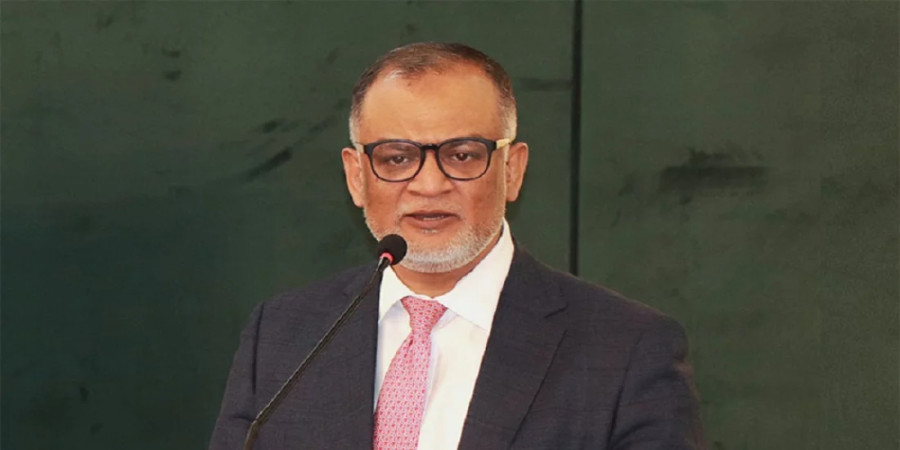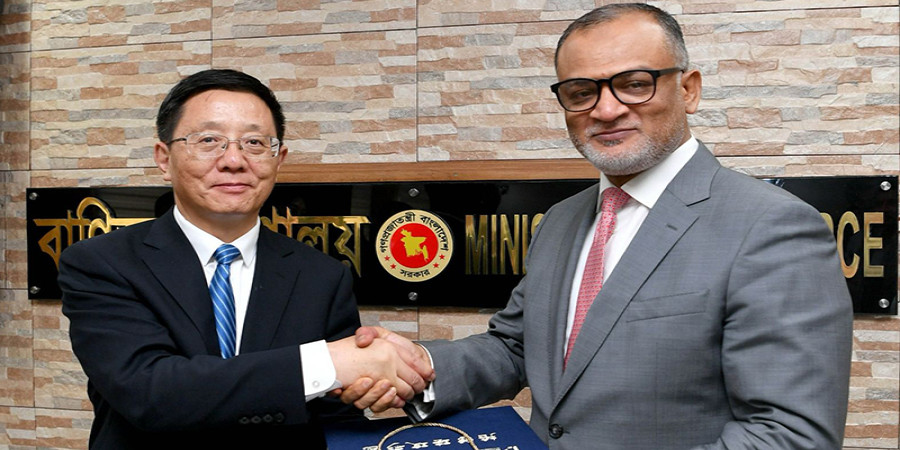
ছবি: Photo: Collected
India’s decision to discontinue transshipment facilities for goods exported from Bangladesh is unlikely to adversely affect the country’s export sector, Trade Adviser Sheikh Bashiruddin said on Thursday. Speaking at the inauguration of the two-day ‘Meet Bangladesh Exposition’ held at the ICCB in Dhaka, he emphasized that Bangladesh is now focusing on maximizing its internal capabilities to reduce export costs and ensure competitive pricing.
“By enhancing the efficiency of our domestic logistics and infrastructure, we are reducing export expenses for our entrepreneurs,” Bashiruddin stated. He noted that strategic initiatives are in place to make the export process more cost-effective and resilient in the face of external policy changes by neighboring countries.
He further highlighted that the government has been working on trade facilitation and export diversification, which are key to sustaining growth in the international market. Among the recent initiatives is the introduction of the National Single Window system, which aims to streamline trade-related procedures and enhance transparency.
Addressing the need for greater export diversification, Bashiruddin said that it is no longer viable for Bangladesh to depend on a limited range of products. He urged businesses to focus on innovation and to explore new markets, underscoring that global competitiveness depends on adaptability and foresight.
The exposition brought together over 120 local enterprises representing various sectors such as leather and leather goods, footwear, medical protective equipment (MPPE), plastics, and light engineering. The event attracted international sourcing agents and buyers from nine countries including Singapore, Libya, Colombia, Algeria, the UAE, India, Bhutan, the Maldives, and Malaysia.
In the welcoming address, Abdur Rahim Khan, Project Director of the EC4J initiative, stressed the importance of public-private collaboration in achieving the country’s export goals. Also present at the event were Suhail Qasim, Acting Country Manager of the World Bank in Dhaka; Hosna Ferdous, Senior Private Sector Specialist; Sultan M. Albeshi, CEO of Al Nukbah Group; and Shamim Ahmed, President of the Bangladesh Plastic Goods Manufacturers and Exporters Association (BPGMEA).
Suhail Qasim noted that after Bangladesh graduates from the Least Developed Country (LDC) category, it will face reduced foreign aid. Therefore, he stressed the importance of supporting small and medium enterprises (SMEs), increasing technological adoption, and improving competitiveness to sustain development.
BPGMEA President Shamim Ahmed pointed out that SMEs contribute around 30% to the country’s GDP. While the readymade garment industry continues to lead in exports, he said other sectors, particularly plastics, show great promise. According to Ahmed, the plastic industry is currently experiencing 20% growth annually, suggesting significant untapped potential.
Organizers reported that more than 1,000 local buyers are participating in the exhibition. Additionally, international sourcing agents are expected to visit several participating factories to explore business opportunities and partnerships.
The 'Meet Bangladesh Exposition' serves as a platform for local producers to connect with global markets, showcase innovation, and demonstrate the country's readiness to move beyond traditional export boundaries. It also reflects Bangladesh’s strategic pivot toward building a robust and diversified export base in a changing global trade landscape.
repoter





